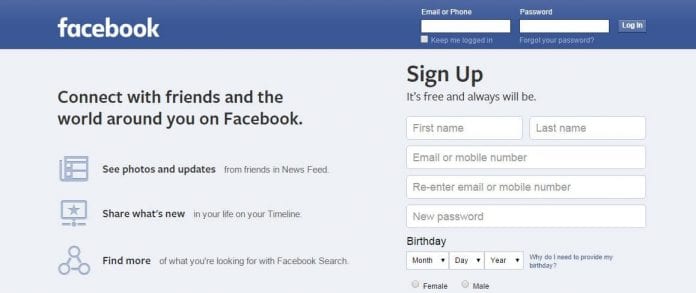Malware that has been targeting Facebook users and their accounts was detected by the popular international software security company, Kaspersky.
The security firm reported that they had detected around 10,000 Facebook users accounts had been affected which ranged from countries such as Brazil, Poland, Peru, Colombia, Mexico, Ecuador, Greece, Portugal, Tunisia, Venezuela, Germany, and Israel. The accounts were affected by malware which managed to disguise itself as one message from a user’s Facebook friend. The message mentions that the “friend” has mentioned them in a comment.
The senior security researcher at Kaspersky Lab global research and analysis team, Ido Naor said in a statement that there were two aspects concerned when it came to the attack. At first, the delivery efforts of the malware are extremely efficient, and they can reach a thousand users in less than 48 hours. He also said that the response from users and the media to the mention was also fast.
Kaspersky said that there were two stages for the malware attack to occur. The first stage pertained to the Trojan virus which would be installed on the user’s computer and downloaded a malicious browser extension and therefore let the virus take over the victim’s Facebook account. The firm also said that the computers which were most at risk were the Windows-based computers. Android and iOS devices were immune from the attack, thankfully.
When the malware gets in and now has the control of one’s account, it can then change the privacy settings, harvest the data of the victim, and also help itself spread through the victim’s Facebook friends.
The attack is believed to have taken place during June 24 to 27 and from there on the already compromised devices spread the malware to their Facebook friends’ accounts.
The Philippines is also one of the most susceptible countries to the attack because of its fast growing Facebook presence. Statistics by statista.com show that the country ranks first for the daily social media usage, and there were about 40 million Philippines who accessed the social media websites including Facebook in 2015 alone. That number is also expected to rise in 2016, to 42 million.
All this, regardless of the slow internet speeds that are in the country. The country also has a massive 119 million mobile phone subscribers, which all place the country at even more risk.
Naor pointed out that a case like this was not new, and similar cases had been reported a year ago. In both last year’s malware and this year’s, they all seem to have originated from Turkey.
Facebook and Google have tried to act to remove the malware and stop its spreading by blocking the infection attempts and also removing one of the infectious extensions that are in the Chrome Web Store.
Kaspersky says users should run malware scans on their computers and also look for any unexpected extensions in their Chrome browsers. If users detect suspicious activity, they should log out, close the browser, and remove the network adapter from the computer. After that, they have to go for professional help. They also said users should stop clicking on suspicious links or any unexpected messages from Facebook friends so that they would not be affected by the malware.









